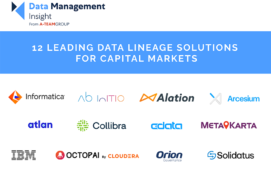
The Global Legal Entity Identifier Foundation (GLEIF) has set out grand plans to create a digitised LEI service based on a digitally verifiable credential containing the LEI – the vLEI – and able to provide automated identity verification between counterparties. The ambition is for all industry sectors globally, including financial services, to embed new and existing LEIs in verifiable credentials, and thus build a cryptographically secure chain of trust that could replace manual processes needed to access and confirm an entity’s LEI data.
GLEIF has conducted a number of research initiatives into the vLEI through 2020 and is engaged in research partnerships and technical trials with stakeholders in the financial services, pharmaceutical, healthcare, telecom and automotive sectors. A range of blockchain, self-sovereign identity and other decentralised key management propositions are being explored, and the GLEIF is calling on stakeholders from across the digital economy to take part in a cross-industry development programme to build an open ecosystem and credential governance framework, as well as a technical support infrastructure, for the vLEI.
Financial services companies involved in the early research include Bloomberg. Steve Meizanis, global product head of symbology and LEI services, says: “Bloomberg’s two vLEI proof-of-concept trials signal a clear opportunity to broaden the usage of LEIs and increase adoption in digitised corporate activities. This also increases the scope for new and existing LEI issuers to offer vLEI services, strengthening the Global LEI System as a whole.”
This is a bold move by GLEIF, which recently announced an LEI validation agent framework designed to help financial institutions improve customer experience, accelerate client lifecycle management and reduce costs by using business-as-usual KYC and anti-money laundering (AML) onboarding procedures to facilitate LEI issuance for clients. The framework is also expected to drive up the volume of issued LEIs.
Earlier this year, prompted by GLEIF, the ISO defined a standard approach for Certification Authorities to embed LEIs within digital certificates. At the time, Stephan Wolf, CEO at the GLEIF said: “This development is a critical milestone in our mission to extend the relevance and adoption of the LEI beyond regulatory use cases. Our aim is to do that by promoting its capacity to enhance trust and add significant value across a wide range of digital identity management applications.”
Commenting on the vLEI, Wolf says: “The global LEI system is unique in its capacity to provide regulated and standardised global identities for legal entities everywhere. Our next step is to secure the process of presenting and verifying LEI data digitally, so it can be used across the digital economy in corporate ID use cases.”
GLEIF has collaborated with Deloitte to identify that demand generation for the vLEI will occur through a combination of existing LEI use cases, including regulatory mandates for financial reporting; growth market segments in relation to new use cases, such as Know Your Customer (KYC) procedures; and the broader digital economy, including strong anticipated growth in the area of self-sovereign identity-enabled business ecosystems.
Derek Ryan, partner, Deloitte, says: “The potential value that will be unlocked by the vLEI is substantial, as it enables government authorities and identity service providers to embrace efficient new digital platforms, create new digital ecosystems and end reliance on repetitive manual identity verification steps that account for high annual costs across the global economy.”
GLEIF says the vLEI will give government organisations, companies and other legal entities worldwide the capacity to use non-repudiable identification data about their legal status, ownership structure and authorised representatives in a growing number of digital business activities, such as approving business transactions and contracts, onboarding customers, transacting within import/export and supply chain business networks, and submitting regulatory filings and reports.
Subscribe to our newsletter




